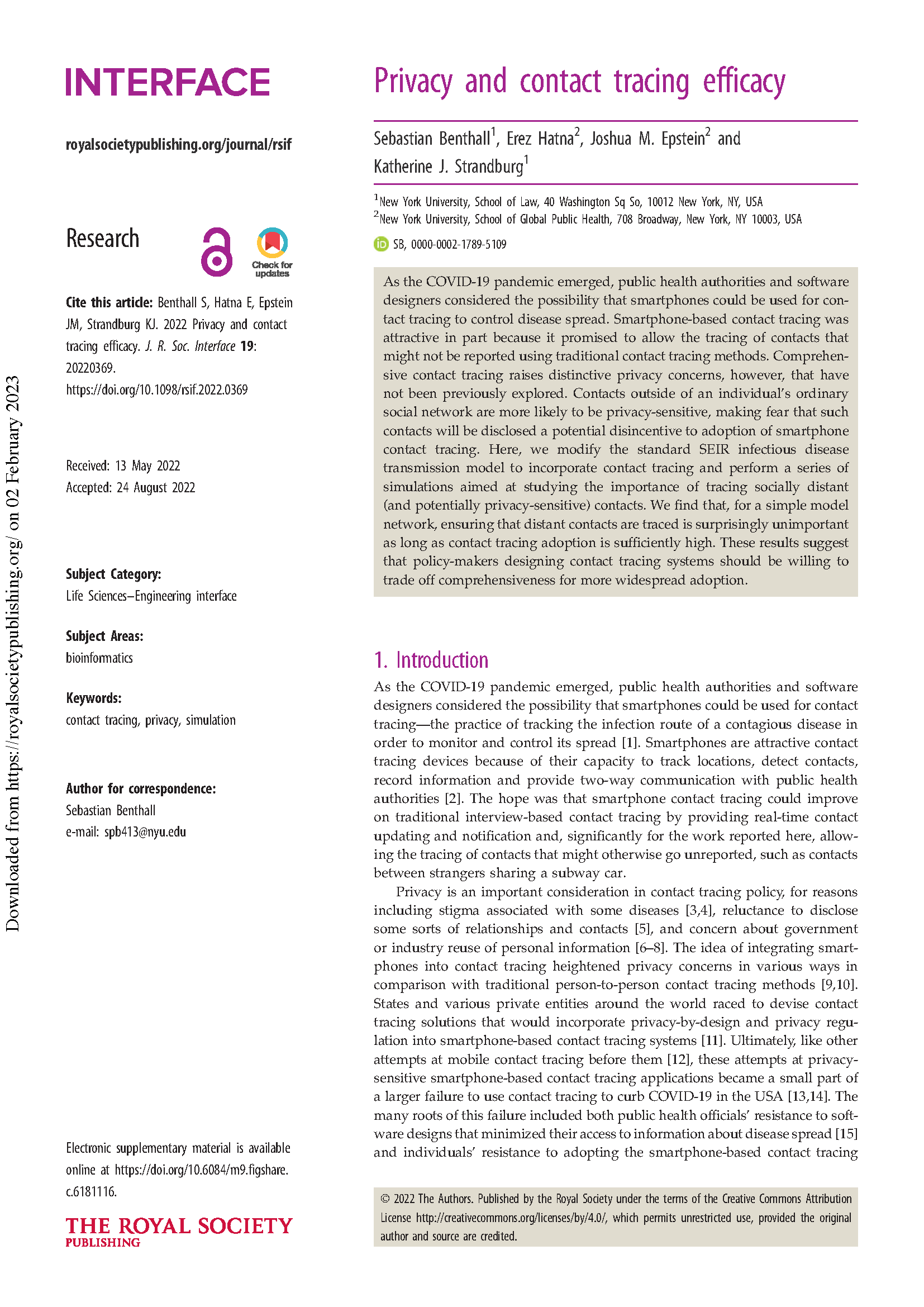Privacy and Contact Tracing Efficacy
Sebastian Benthall, Erez Hatna, Joshua M. Epstein, and Katherine J. Strandburg
As the COVID-19 pandemic emerged, public health authorities and software designers considered the possibility that smartphones could be used for contact tracing to control disease spread. Smartphone-based contact tracing was attractive in part because it promised to allow the tracing of contacts that might not be reported using traditional contact tracing methods. Comprehensive contact tracing raises distinctive privacy concerns, however, that have not been previously explored.

Contacts outside of an individual’s ordinary social network are more likely to be privacy-sensitive, making fear that such contacts will be disclosed a potential disincentive to adoption of smartphone contact tracing. Here, we modify the standard SEIR infectious disease transmission model to incorporate contact tracing and perform a series of simulations aimed at studying the importance of tracing socially distant (and potentially privacy-sensitive) contacts. We find that, for a simple model network, ensuring that distant contacts are traced is surprisingly unimportant as long as contact tracing adoption is sufficiently high. These results suggest that policy-makers designing contact tracing systems should be willing to trade off comprehensiveness for more widespread adoption.
